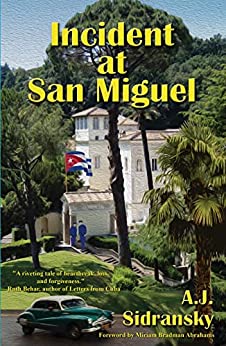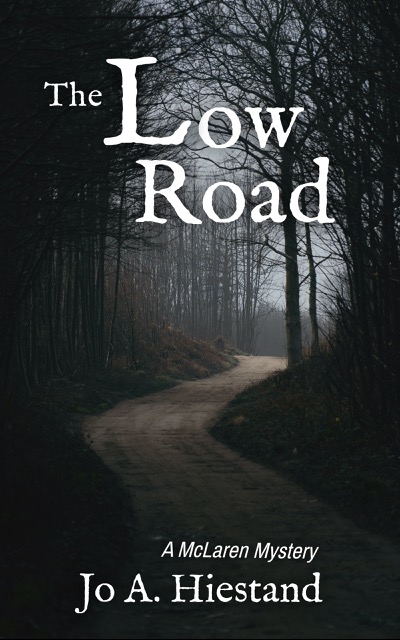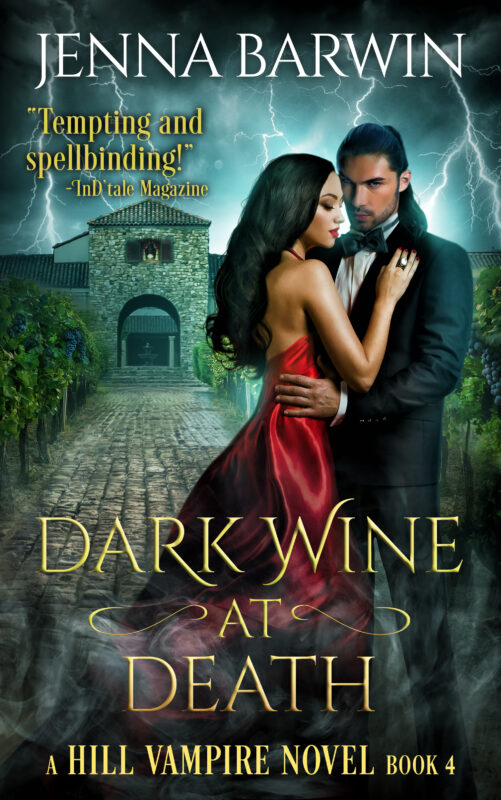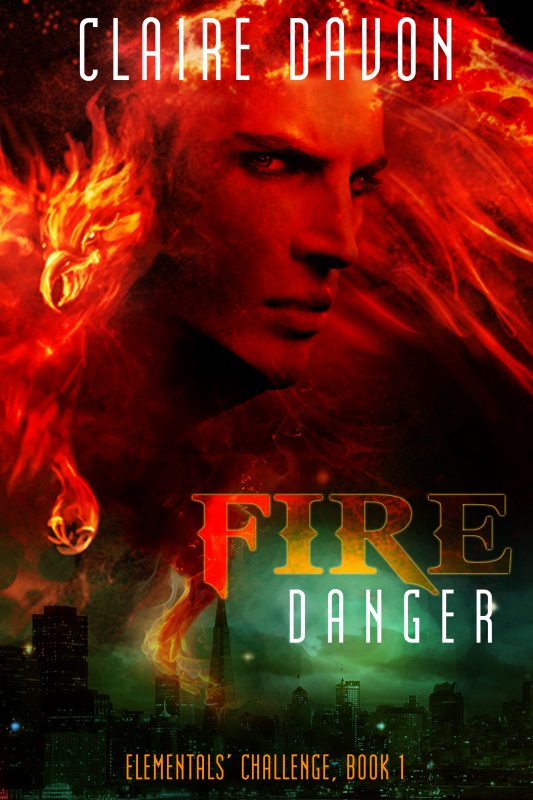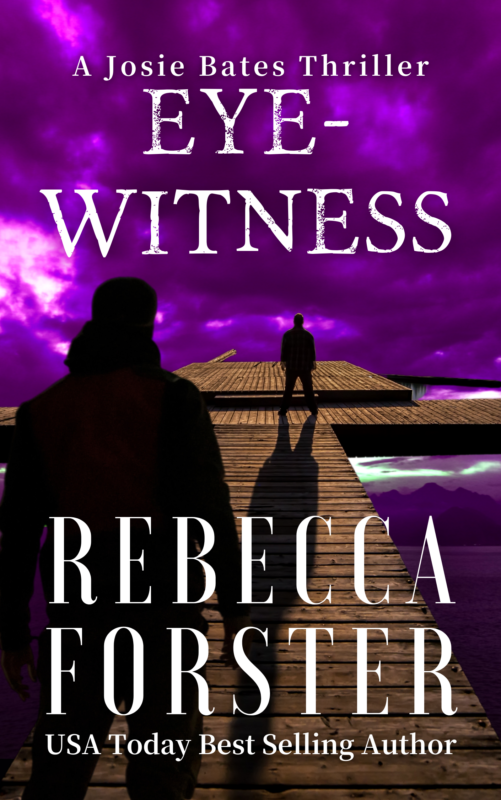Reviewing Reviews by Jenny Jensen
December 19, 2019 by Jenny Jensen in category On writing . . . by Jenny Jensen tagged as Book reviews, bookworms, indie authors, no spoiler alerts, reviews
Caution: This is a pet peeve. A rant may ensue.
I enjoy book reviews. I read reviews of books I might want to purchase, reviews of books I’ve read and loved, reviews on the works of authors I I know and love, reviews of books I’ve just finished, reviews of my client’s work. And I read reviews because, well, I really love listening to fellow bookworms talk about books.
Reviews are important to any author’s success, of course, but they’re especially important to the Indie author. Indie authors can promote any number of ways, but reviews are the crucial fuel for sales. Readers rely on reviews, especially if the author is new to them; Indie authors rely on reviews to find readers. It’s this fact that makes me so crazy when a review is an elaborate retelling of the story, complete with outing all the twists and mysteries as well as the resolution. That isn’t a review; it’s a damn book report.
I can feel my head begin to explode when a reviewer prefaces a sentence with ‘spoiler alert’. That’s not a pass to spill the beans. It’s a glaring neon sign declaring that this reviewer, this self appointed arbiter of storytelling, has kindly read the book for me. Now I can save my money because reviewer person has graciously taken care of that grisly chore of actually reading. (Audacity always makes my blood boil.) I mean, what about the word ‘spoiler’ don’t you understand?
A book review should give me some indication of why and how the book affected the reviewer. Specifics are welcome, the more insightful the better. Perhaps the author’s voice is particularly unique and pleasing, or the plot was a refreshing take on a well-loved genre. Maybe it’s the characters that win the day, or the book presented a world view that made the reviewer thoughtful. And if the reviewer didn’t like the book I want to know why. If the book was terrible, what made it a stinker? If some aspect of the story was off-putting be fair; not all readers like the same thing, which doesn’t necessarily make the work bad.
It’s not about the author. If a reviewer dislikes a book because the F-bomb and it’s numerous cousins were used it does not mean the author is in need of spiritual counseling. If the political bent of the tale does not suit the reviewer it does not mean the author could use time in a re-education camp. A review is about the story.
Being of mostly open mind and generally democratic spirit I’ll take the one or two line reviews of the “If you like fill in the genre then this is a must read” or “I spent a great winter weekend with this book. Highly recommend” variety. I may not have any specifics but there is something wonderfully persuasive about that kind of joyful sharing.
You may say I should just give a pass to the book reports and the spoilers, and you would be right. But I raise my pen-sword in defense of every Indie author I know, and those I’ve yet to meet. Insightful, honest reviews are sustenance to a writer. They impact sales and the writer’s heart. When you review, do it with substance. Please don’t retell the story – it’s the author’s story to tell and the reader’s tale to enjoy, and for the love of the muses, don’t give away the best bits. You’re going to make my head explode and I do not want my heirs to have to clean that up.
Well, I did say it might be a rant.
The Perfect (writing) Gift
December 15, 2019 by Rebecca Forster in category The Write Life by Rebecca Forster tagged as Craft, Family, strategy
I was speaking to a new writer the other day, and I was impressed by her clarity. She knew enough to understand the life of a writer is tough, but she was willing to work hard. What really impressed me, though, was when she asked if she could share what I told her with her husband because he was her biggest fan.
I told her that put her ten steps ahead of most people since family support is critical for an artist. No message board, chat room or critique group can truly duplicate a family’s faith, their unflagging support, and, if a writer is very lucky, loving honesty. I know because I was showered with that kind of support from day one.
While I may have started writing because of a crazy dare, my first stab at writing was pretty traditional. By that I mean it was awful. I threw away the pages (there were no computers then). One day when I was cleaning I found that sad little manuscript under the sofa. The story I considered idiotic, my husband believed was incredible merely because I had created it. That gesture – pulling the pages out of the trash and hiding them to preserve my ‘brilliance’ – was enough to make me sit down and try again.
When that book sold, I dared to dream that I had actually started on a career path. It wasn’t an easy one. There were challenges and frustrations, joys and excruciating anticipation. For every two steps forward there was one step back, and all of it was shared with family. In return, family gave back encouragement, sympathetic ears and selfless celebration when it was called for. Often my husband did the household chores after his own long day at work so I could write in the evening. When I wrote during the day I kept my two toddlers quiet for a while by putting an old typewriter on the floor, threading it with paper, and telling them to write their book while I wrote mine.
Books were sold, books were rejected, books were started and never finished. My family endured my tears and meltdowns when things looked bleak. But when something good happened the celebration was a family affair even if it was just a trip to McDonalds for McNuggets in those early days. It was my husband who found the Kindle opportunity before I even heard of it. One of my children is a writer now and we spend long hours in the kitchen talking craft. My other son works in Hollywood and brings a whole knew point of view to my storytelling.
Over the years, over the course of penning 39 books, nothing has changed in our household. My family are my biggest fans (even if my husband can’t remember the titles of my books). I am so grateful for every word they’ve ever spoken, every hug I’ve received, and every chore they’ve undertaken in service to my work.
Throughout my thirty-year career I also learned a very important lesson: to return the favor. Whether a person writes books, don judge’s robes, manages an office, waits tables, pilots an airplane, or is a cop on the beat; no matter what we are in the ‘real world ‘the best gift we can give and receive is the utter, undying, unshakeable faith in those we love.
No matter who you are, what you do, or what you dream give the gift of goodwill to someone you love because it will come back to you ten fold.
Merry Xmas.

Don’t miss Rebecca’s new release, Lost Witness.
Join over 2 million readers of The Witness Series and never miss a Josie Bates Thriller.
December Featured Author: Rebecca Forster
December 14, 2019 by Rebecca Forster in category Featured Author of the Month tagged as December Feature Author, Josie Bates, Lost Witness, new release, Rebecca Forster., The Witness Series

She marketed a world-class spa when it was still called a gym, did business in China before there were western toilettes at the Great Wall and mucked around with the sheep to find out exactly how her client’s fine wool clothing was manufactured. Then Rebecca wrote her first book and found her passion. Now, over twenty-five books later, she is a USA Today and Amazon bestselling author and writes full-time, penning thrillers that explore the emotional impact of the justice system. She earned her B.A. at Loyola, Chicago and her MBA at Loyola, Los Angeles. Rebecca has taught the Business of Creativity at University of California Long Beach Writers Certificate Program, UCLA and UC Irvine extension. Married to a Los Angeles Superior Court judge, she is the mother of two grown sons and spends her free time traveling, sewing, and playing tennis.

December 1st sees the release of Rebecca’s newest novel Lost Witness the eighth in the Josie Bates Witness.
It’s two in the morning and an aging cargo ship lies off the Port of Los Angeles. Deep in the bowels of the vessel, an important man is dead and the woman who killed him is mortally wounded. On shore another man staggers out of the sea determined to save the woman before she dies or the ship sails. Exhausted and terrified, he goes to the only person he trusts to help, Josie Bates. He brings with him a history she can’t ignore, a problem that seems insurmountable, and a plea she can’t refuse. But Josie is up against international law, maritime justice, a Port Authority that doesn’t want anything to get in the way of profit, the U.S. Coast Guard who dances to the tune of politics and a captain who swears the people in question were never on his ship. With the clock ticking, Josie becomes ever more desperate to prove the woman is real and get her safely ashore. What Josie doesn’t know is that the sands of time that are running out may be her own.
More Books by Rebecca Forster
The Seven Challenges I Love About Writing Short Stories by Jerome W. McFadden
December 13, 2019 by Bethlehem Writers Group in category From a Cabin in the Woods by Members of Bethlehem Writers Group tagged as Jerome W. McFadden, Short Stories, writing, Writing Advice

Multi-award winning Jerome W. McFadden’s has had forty short stories published over the past ten years in a wide magazines, e-zines, and a dozen anthologies. He efforts have won him several national awards and writing contests, receiving a National Bullet Award for the Best Crime fiction on appear on the web in June 2011. His short stories have been read on stage by the Liar’s League in Hong Kong and the Liar’s League in London.
After receiving his B.A. from the University of Missouri, he spent two years as a Peace Corps volunteer in Casablanca, Morocco. Following his MBA from the Thunderbird Graduate School of Global Management (Arizona State University). He continued his peripatetic ways with corporate assignments in Houston, Istanbul, Paris, San Francisco, and Singapore, spending his spare time writing free-lance articles for American and newspapers and magazines. He morphed from journalism to short fiction in 2009. He now resides in Bethlehem, Pa. and is an active member of the Bethlehem Writers Group. His collection of 26 short stories, Off The Rails, A Collection of Weird, Wicked, & Wacky Stories, appeared in November, 2019.
The Seven Challenges that I Love About Writing Short Stories
1) You need to get into the story from the very start:
Every word in a short story matters. Time and space are limited. You cannot afford to waste a page or two describing the weather, building the setting, or giving the genealogy of your hero/heroine. You need to get to the guts of the action quickly, pulling the reader in with the first paragraph. By the end of the first page the reader should be aware of the famous 5 W’s of journalism: Who, where, when, what, with why possibly coming later.
2) You need to quickly define the core of the story:
Short stories follow only one trajectory — one arc — concerning one character (or a small group of characters) traveling through one primary crisis or concern. The crisis or concern is in fact one shattering moment in that person’s (or group’s) life that he/she must work through, successfully or unsuccessfully. Note: That shattering moment does not need to be violent. It could be emotional, psychological, mental, or spiritual, or other. But it needs to be challenging. *
3) You must develop your characters rapidly.
Characters must be construct with complexity, credibility, and emotion—in as little as a sentence or two. The writer must show character development while actively moving through the story’s narrative. You do not have time or space for the big old info dump. Instead, the writer needs to use clever dialogue, interactions, short flashbacks, and sharp imagery to develop the story’s characters.
4) You are allowed only so many characters in the story:
You are limited to a small cast of characters. A full cast might consist of only one or two characters. Any character you decide to introduce must bring something crucial to the story – or be eliminated. Bringing in a characters for “cuteness” or for “color” or just because you like the quirky character in your head, is wasting precious words and precious space in your story. A good rule: Any character that does not bring in two vital elements into the story needs to be eliminated forthwith.
5) Short stories require a strong pace and balance:
Recognize the descriptions and dialogues that slowing the story down, as well those that are those that are moving the story along. You must identify the best place to start, where to put the opening scene that hooks the reader, then maintain that hook to continue to pull the reader through the rest of the story.
6) Short stories teach you to trim the fat:
Short stories leave no time for easing into things (long descriptions, banal conversations, interesting but boring backstory, wild personal tangents). Short stories are just that—Short —but they must always pack a punch. This may be the ultimate skill to be learned from short story writing: Trim the fat. My favorite writing “rule” comes from the legendary writer Elmore Lenonard, ‘Leave out the parts that the readers skip.”
7) A great short story must create an emotional impact:
The stronger the better. And a great twist at the ending helps make the story memorable
An added note: The tools and skill you pick up from writing short stories are assets that can and probably should be used in your novel writing.
*This “shattering moment” is described lovingly and in full detail in Chapter 3 – The Big Key in James Scott Bell’s wonderful book How to Write Short Stories And Use Them to Further Your Writing Career.
A Selection of Books by Jerome W. McFadden
It’s The Most Wonderful Time Of The Year…To Reflect on Your Accomplishments
December 12, 2019 by Denise M. Colby in category The Writing Journey by Denise Colby tagged as encouragement, Writing Goals
It’s the most wonderful time of the year…
To reflect on our goals and all that we’ve accomplished, so loved ones will hear!
It’s the most wonderful time of the year!
Many times when we are working by ourselves, at our desk, with our words, we find ourselves deep in the minutie and seeing only all the things we have still left to do.
We may not have met any of our aggresive goals each month, or even each week, as life intrudes on a daily basis for us all.
Yet, there are things we do that we should say, “yes, I did that.” And feel good about it.
For me, I’m rounding into my eighth year and still haven’t published my book. (I started this journey in 2012). If I focused only on that one thing, I would be frustrated, disappointed, and inclined to throw my hands up and say that I’m done.
But if I count
- Webinars I’ve attended
- the magazine articles I published this year,
- my monthly blog posts at A Slice of Orange,
- my blog posts on my own website,
- the conference I attended and taught at for the first time,
- the monthly meetings where I got to talk shop with other writers,
- and all the emails and social media posts I read and shared over the past year,
I’ve actually done a lot.
Not to mention the weekly critique meetings with my two lovely critique partners, where I’ve gotten some fantastic feedback on my manuscript, and the helpful feedback I’ve been able to provide in return.
Then there’s the pitches I’ve submitted for teaching at more conferences for next year and the deadline dates for contests I hope to be ready for.
All of that tells me I’m making progress.
It may be slow, but progress is progress.
And I wouldn’t be able to track my progress, if I didn’t take the time to write out these things I’ve accomplished throughout the year.
So, I encourage you to take a step back and think about what you have accomplished in 2019.
- Did you write any new words?
- Did you edit any words?
- Did you publish a book?
- Or an article?
- Or a blog post?
- Did you attend a meeting?
- Or a conference?
- Take an online class?
- Read a reference book or a craft book?
- Listen to a webinar?
- Listen to a podcast?
- Ready a blog post or newsletter from another writer?
- Did you meet up with a writing buddy?
- Do you have a website?
- Or a newsletter?
- Did you post a social media post related to writing?
- Or read a few?
- Did you read a book for fun?
There’s a lot of things we do to put words on a page and turn them into a great story. Don’t discount any of it. Whether it just fills our soul to inspire, or gives us tools we can apply to our writing, it all helps us continue on our writing journeys.
Have a very Merry Christmas! I’m thankful for you all.
Here’s to another year of writing related stuff in 2020!
Affiliate Links
A Slice of Orange is an affiliate with some of the booksellers listed on this website, including Barnes & Nobel, Books A Million, iBooks, Kobo, and Smashwords. This means A Slice of Orange may earn a small advertising fee from sales made through the links used on this website. There are reminders of these affiliate links on the pages for individual books.
Search A Slice of Orange
Find a Column
Archives
Featured Books
DARK WINE AT DEATH
A seductive spy. A powerful vampire. A traitor in their midst...
More info →EYEWITNESS
Three people are massacred in a beach house, a latch-key kid is fingered.
More info →Newsletter
Contributing Authors
Search A Slice of Orange
Find a Column
Archives
Authors in the Bookstore
- A. E. Decker
- A. J. Scudiere
- A.J. Sidransky
- Abby Collette
- Alanna Lucus
- Albert Marrin
- Alice Duncan
- Alina K. Field
- Alison Green Myers
- Andi Lawrencovna
- Andrew C Raiford
- Angela Pryce
- Aviva Vaughn
- Barbara Ankrum
- Bethlehem Writers Group, LLC
- Carol L. Wright
- Celeste Barclay
- Christina Alexandra
- Christopher D. Ochs
- Claire Davon
- Claire Naden
- Courtnee Turner Hoyle
- Courtney Annicchiarico
- D. Lieber
- Daniel V. Meier Jr.
- Debra Dixon
- Debra H. Goldstein
- Debra Holland
- Dee Ann Palmer
- Denise M. Colby
- Diane Benefiel
- Diane Sismour
- Dianna Sinovic
- DT Krippene
- E.B. Dawson
- Emilie Dallaire
- Emily Brightwell
- Emily PW Murphy
- Fae Rowen
- Faith L. Justice
- Frances Amati
- Geralyn Corcillo
- Glynnis Campbell
- Greg Jolley
- H. O. Charles
- Jaclyn Roché
- Jacqueline Diamond
- Janet Lynn and Will Zeilinger
- Jaya Mehta
- Jeff Baird
- Jenna Barwin
- Jenne Kern
- Jennifer D. Bokal
- Jennifer Lyon
- Jerome W. McFadden
- Jill Piscitello
- Jina Bacarr
- Jo A. Hiestand
- Jodi Bogert
- Jolina Petersheim
- Jonathan Maberry
- Joy Allyson
- Judy Duarte
- Justin Murphy
- Justine Davis
- Kat Martin
- Kidd Wadsworth
- Kitty Bucholtz
- Kristy Tate
- Larry Deibert
- Larry Hamilton
- Laura Drake
- Laurie Stevens
- Leslie Knowles
- Li-Ying Lundquist
- Linda Carroll-Bradd
- Linda Lappin
- Linda McLaughlin
- Linda O. Johnston
- Lisa Preston
- Lolo Paige
- Loran Holt
- Lynette M. Burrows
- Lyssa Kay Adams
- Madeline Ash
- Margarita Engle
- Marguerite Quantaine
- Marianne H. Donley
- Mary Castillo
- Maureen Klovers
- Megan Haskell
- Melanie Waterbury
- Melisa Rivero
- Melissa Chambers
- Melodie Winawer
- Meriam Wilhelm
- Mikel J. Wilson
- Mindy Neff
- Monica McCabe
- Nancy Brashear
- Neetu Malik
- Nikki Prince
- Once Upon Anthologies
- Paula Gail Benson
- Penny Reid
- Peter Barbour
- Priscilla Oliveras
- R. H. Kohno
- Rachel Hailey
- Ralph Hieb
- Ramcy Diek
- Ransom Stephens
- Rebecca Forster
- Renae Wrich
- Roxy Matthews
- Ryder Hunte Clancy
- Sally Paradysz
- Sheila Colón-Bagley
- Simone de Muñoz
- Sophie Barnes
- Susan Kaye Quinn
- Susan Lynn Meyer
- Susan Squires
- T. D. Fox
- Tara C. Allred
- Tara Lain
- Tari Lynn Jewett
- Terri Osburn
- Tracy Reed
- Vera Jane Cook
- Vicki Crum
- Writing Something Romantic
Affiliate Links
A Slice of Orange is an affiliate with some of the booksellers listed on this website, including Barnes & Nobel, Books A Million, iBooks, Kobo, and Smashwords. This means A Slice of Orange may earn a small advertising fee from sales made through the links used on this website. There are reminders of these affiliate links on the pages for individual books.

















































